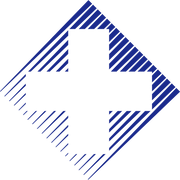
In 2016, the U.S. National Health Observances Calendar named August Gastroparesis Awareness Month. While this paved the way for all kinds of health care campaigns, gastroparesis remains a relatively unknown condition. Here’s what you should know about it if you or someone you love is prone to gastrointestinal distress.
What Is Gastroparesis?
Gastroparesis is characterized by poor motility in the stomach. The stomach muscles are supposed to contract to push food through the digestive tract. But with gastroparesis, muscle movement slows or even stops altogether. The most telling symptoms include nausea, vomiting, acid reflux, abdominal pain, bloating, malnutrition, weight loss, and poor appetite.
How Is Gastroparesis Treated?
 The most effective treatment for gastroparesis will depend on its underlying cause. For example, certain medications, including opioid pain relievers and antidepressants, can inhibit the stomach muscles. Researchers also believe damage to the vagus nerve, which manages the digestive tract, can cause gastrointestinal disorders.
The most effective treatment for gastroparesis will depend on its underlying cause. For example, certain medications, including opioid pain relievers and antidepressants, can inhibit the stomach muscles. Researchers also believe damage to the vagus nerve, which manages the digestive tract, can cause gastrointestinal disorders.
As for managing gastroparesis, the first step is making simple dietary changes. For example, eating smaller meals and having cooked fruits and vegetables instead of raw produce can facilitate digestion. Going for a walk after eating can also trigger the stomach muscles. For moderate cases, medications that stimulate digestion can help. For severe cases, feeding tubes may be necessary.
If you recognize the symptoms of gastroparesis, turn to the compassionate health care providers at Fairbanks Clinic, Inc. for diagnosis and treatment. The full-service Alaskan primary care clinic is equipped to perform colonoscopies and upper endoscopies on-site. Treating gastrointestinal disorders isn’t all their family doctors do though. Since 1932, patients of all ages have turned to them for comprehensive health care. To make an appointment with a member of their team, reach out online or call (907) 452-1761. You can also follow them on Facebook for more health care tips.
About the Business
Have a question? Ask the experts!
Send your question

